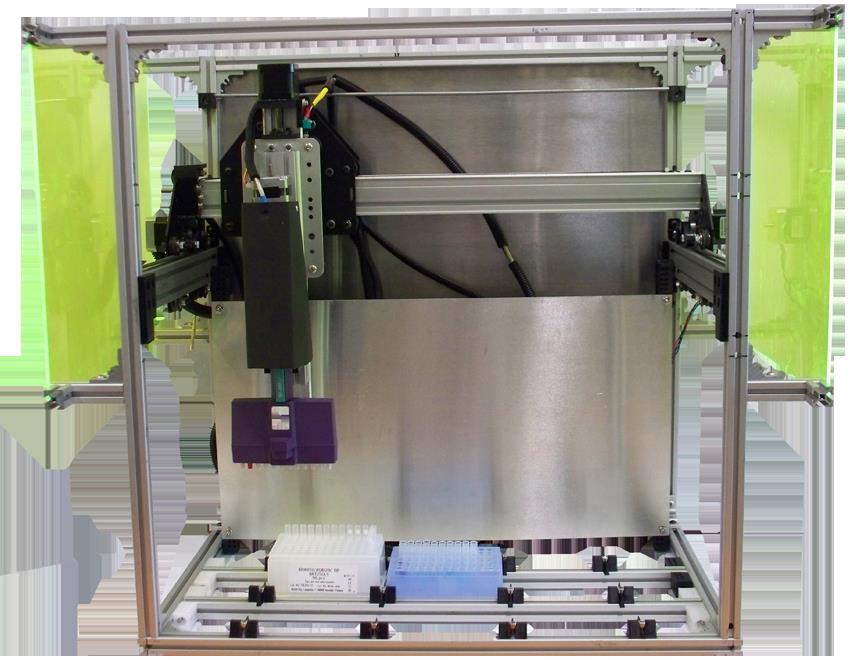New Robot Makes Creating New Life Forms Easy

It’s entirely possible that the biggest changes in society during this century will come about due to innovations in biotechnology. One of the most talked about is the OpenTrons project.
This open-source liquid-handling robot was developed in the Brooklyn, New York community biolab, Genspace.
With open-source technology, anyone is able to build, modify or copy the the work depending on their personal preference, and can do so at the ridiculously low price of $35, the price of a Raspberry Pi microcomputer. The popularity of 3-D printing has helped dramatically reduce the price of a basic OpenTrons to $2,000 by making it possible to cheaply and accurately duplicate the mechanical components.
The thinking is that, much like people who work together coding to develop computer websites, software and apps, those working in Genspace-type facilities across the world will collaborate on biotech projects. One of the projects backers says this project is built for researchers who are not interested in programming but are interested in using simple interfaces. Using robots eliminates the need for researchers to perform mind-numbingly repetitive jobs that lend themselves to errors caused by lapses in concentration.
Other similar projects include Modern Meadow, which attempts to keep animals alive by “printing” such things as leather and meat through means of biotech, and synthetic biology tries to create genetic breakthroughs in such things as life-saving drugs and fertilizer by piecing together new organisms.
One of the hopes is that standard lab protocols will be established in order to produce regular data that can then be duplicated. The end result would be that researchers could spend their time using their minds to think up new possibilities instead of becoming laborers who works with their hands.
